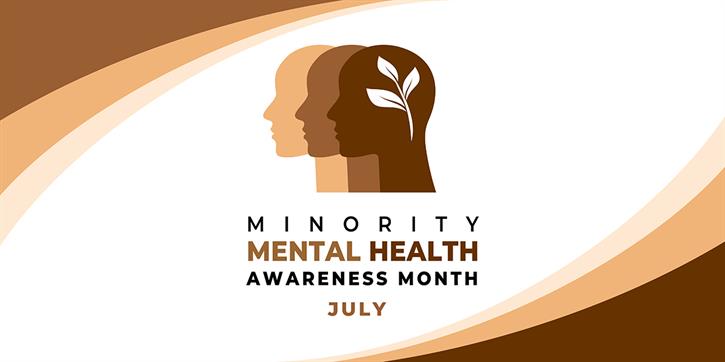Tháng 7 là tháng Nhận thức về sức khỏe tâm thần ở đối tượng thiểu số
July is Minority Mental Health Awareness Month, a time to bring awareness to the unique struggles that racial and ethnic minority communities face regarding mental illness in the United States. The COVID-19 pandemic has made it harder for racial and ethnic minority groups to get access to mental health and substance use treatment services. This July brings a heightened emphasis on awareness than ever before.
For 2021, we praise the services and programs of two local organizations that have been doing great work in our community: Asian Health & Service Center (AHSC) and Central City Concern’s Imani and Puentes programs. These two partners are members of the Alliance of Culturally Specific Behavioral Health Providers & Programs, a group of culturally specific (bicultural & bilingual) behavioral health providers and programs providing culturally and linguistically specific services to meet the special needs of the racially and ethnically diverse populations in Oregon. These populations are members of the African American and Black, Asian, Hispanic, Native American communities, and immigrants and refugees from Eastern Europe, Africa, and Middle Eastern countries.
The Alliance is comprised of:
- Asian Health & Service Center
- Lutheran Community Services Northwest
- Native American Rehabilitation Association
- OHSU’s Intercultural Psychiatric Program and Avel Gordly Center for Healing
- Central City Concern’s Imani Center and Puentes Program
All of these organizations work toward a goal of making mental health care more accessible, understandable and culturally relevant for their respective communities.
Here are spotlights on two of the organizations that serve the Asian, Black and African American, and Latinx/Hispanic communities.
Asian Health & Service Center (AHSC)
Asian Health & Service Center (AHSC) started in 1983 to serve local Chinese communities. Today, their vision is to reduce health inequity and improve health care quality for all Asians. They have a state-certified outpatient behavioral health clinic specializing in serving the Asian community with clinical services provided by a team of bilingual professionals and contracted psychiatrists.
For Asians who seek mental health care, they can find culturally competent and linguistically appropriate services from AHSC offered in Cantonese, Korean, Mandarin, Taiwanese, Vietnamese or English. All staff members of the mental health program are multilingual and multicultural professionals who have extensive experience in the field.
In their mental health clinic, they provide psychiatric evaluations and medication managements, individual/couple/family/group therapy, skills training, case management, socialization activities, and consults for issues of cultural consideration when working with the Asian community. AHSC serves individuals with mental, emotional, and/or behavioral problems, who are looking for a culturally specific approach to therapy.
AHSC was also one of the eight recipients of our Traditional Health Workers grant, which provided funds for partner organizations enhancing programs that use Traditional Health Workers.
You can find more about their mental health services at https://www.ahscpdx.org/mentalhealth.html
Central City Concern Imani and Puentes Programs
Central City Concern has been serving Portland's houseless since 1979 and Old Town is where they got their start. Over 40 years later, their presence has grown in Portland to include twelve federally qualified health care sites, several of which are located in Old Town and Chinatown.
The Imani Center is one of those clinics, located on NW Everett and 7th St. Since 2015, the Imani Center has been providing culturally specific and responsive Afrocentric approaches to mental health and addictions treatment, peer support and case management. They also connect program clients to housing, employment and benefits support and natural support systems within their own cultural community.
In East Portland, one of Central City Concern’s two clinics houses the Puentes Program. Opened in 2005, Puentes has been supporting the Latinx/Hispanic community and non-English speakers seeking healing and recovery.
They use a multidisciplinary approach to provide culturally specific and responsive services, alcohol and drug treatment and mental health care to individuals and their entire families. Clients receive primary health care, a recovery mentor, a mentor for the entire family and a case manager to help with housing and follow up care. At Puentes, staff members speak the same language, know the culture, and can identify with life experiences. Bilingual and bicultural staff provide counseling and individualized treatment with the clients' unique needs in mind.
To learn more about the Puentes and Imani programs, you can go to Central City Concern’s website


